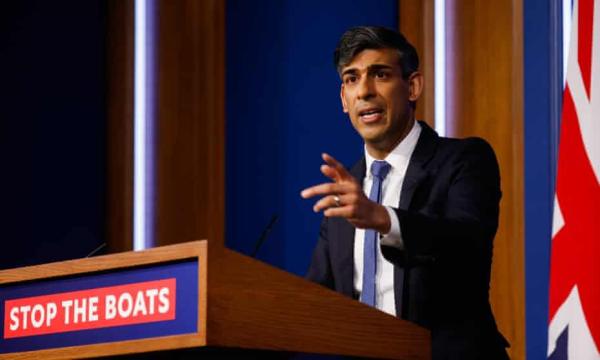
Police have arrested six students in the wake of a wave of unrest in Nyanza region. Anxiety over exams, resistance to transfer of headteachers, copy-cat effect, and indiscipline were blamed for the unrest rocking schools.
Five of those arrested after the burning of two dormitories at Chulaimbo Secondary School were charged with arson in a Maseno court yesterday.
The sixth student reportedly found with two litres of petrol at Ngere High School was yesterday still being held by police. In the North Rift, a dormitory housing 115 students at Chewoyet Boys High School in Kapenguria constituency, West Pokot County, was the latest to be set ablaze. Property worth millions of shillings was destroyed. The fire started at 5am when students were in class for preps.
According to stakeholders, fear of examinations, incitement incited by politicians and schools' failure to meet students' demands could be the cause of the unrest. “Our students have been exposed to many things. Some are drug addicts and lack discipline when in school. Some fear exams and torch school (property) to divert attention,” a parent told The Standard. “This is a complex issue. We believe exams are among the main reasons.
Most students, due to their unpreparedness, believe that when they torch buildings, they will be excused from the tests,” Kenya National Union of Teachers Chepkoilel branch secretary Sammy Bor said. A de-localisation policy introduced by the Government has also been cited. There have been claims that students and teachers are unhappy with the stringent rules being applied by new principals.
Under the programme, the Government has posted new principals to schools outside their home areas, much to the chagrin of some residents who want local people to manage schools. In one incident, students of Ortum High School in West Pokot County went on strike, demanding for that the new principal help them steal the national examinations. "Some schools are being controlled by politicians and politicians have at times influenced the transfer of teachers.
Politics has interfered with the management of schools, leading students to think that removing the 'offending' principal might relieve them from the harsh rules being enforced," said Julius Merikit, a parent. "Since the abolition of corporal punishment, students have become indisciplined. The vacuum left by the abolition of caning has never been filled, giving learners room to become unruly," said John Chebet, a parent at St Patrick's High School, Iten, in Elgeyo Marakwet County.
Nakuru High School Principal David Kemei told The Standard that students could take matters into their own hands when they felt their freedom was limited. “When a principal denies students a chance to watch an international event like the ongoing FIFA World Cup, what do you expect them to do? They react! We must allow some level of democracy in our schools," he added. Catherine Mucheru, an educationist, said the unrest was a symptom of the main issues.
“Poor management of schools, overloaded curriculum, low morale among teachers, peer pressure, drug and substance abuse, indiscipline and rampant expulsion of students, impact of post-election violence and moral decay in society (play a part),” she said. Nyanza has borne the brunt of the student unrest, with more than 10 schools closed in the past week alone. Delayed disbursement of government capitation to schools, weaknesses in the Education Act 2010, breakdown in school management-student communication and congested second terms were also cited as causes. The Kenya Secondary Schools Heads Association's Lake Region chairman, Andrew Gesora, claimed the ongoing World Cup tournament could be a factor. "It could be a ploy by some students to cause trouble in school, be sent home, watch the games and come back when it is over," Mr Gesora said. In some counties such as Nyamira, according to Gesora, regular security meetings have helped quell unrest. He said employment of additional security guards, administrators being close to learners and being liberal with students' demands could help maintain calm. The executive secretaries of the Siaya and Kisumu branches of the Kenya Union of Post Primary Education Teachers (Kuppet), Sam Opondo and Zablon Awange, blamed the unrest on the Education ministry. “I attribute this largely to the over-protection of students by the Ministry of Education and the Government, so to speak. This compromise general discipline of students countrywide,” he said.
Mr Awange said the Education Act had turned students into 'demi-gods'. Financial pressure stemming from the scrapping of additional fees imposed by schools, Mr Opondo added, had strained schools' budgets, resulting in the suspension or withdrawal of some activities. These changes, he said, were rejected by students. “Schools have to depend on Government funding that mostly is remitted late and in small doses,” he said. He continued:
“There is a remote possibility that examination fever could also be a factor, especially by a few disgruntled students who are not well-prepared and may want to disadvantage the others who are prepared and who are the majority.” John Nyambega, a lecturer at Catholic University of Eastern Africa, blamed the Teachers Service Commission and the Education ministry for the indiscipline and fires in school. "The two institutions have mismanaged education and created undue pressure, and the outlet has been the obvious situations we have been witnessing," he said.
The Kebirigo High School principal said he had adopted an open-door policy, allowing students room for dialogue. He added that he had allowed students more freedom in managing their time in school to ease tension. “We let them watch some of the World Cup






















